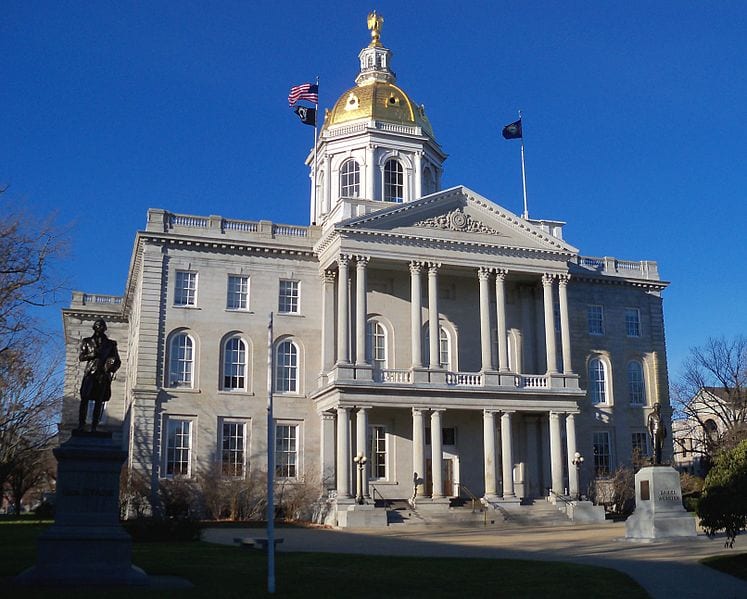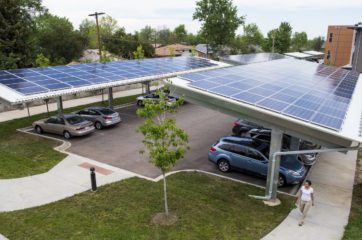This article was contributed by New Hampshire State Representative Marjorie Shepardson (D – Cheshire), who introduced HB 1230 this year.
In 2017, Senator Martha Fuller-Clark (D – Portsmouth) filed SB 123, a bill that would establish “a commission to study a carbon reduction investment program for New Hampshire.” The commission would have been made up of legislators, representatives of the business and environmental communities, and members of the general public to look at how to set up carbon pricing in New Hampshire. Specifically, the bill would explore “the economic impact of a carbon reduction charge” by determining the optimal carbon price for the state and examine whether the revenue should be distributed via a tax swap or a rebate scheme. The bill made it through the Senate but died in the House.
This year, I took a slightly different tack and filed HB 1230 to study the effects that a national carbon pricing plan would have on New Hampshire. The bill prescribed an exploration of the impacts of national carbon pricing on energy costs, businesses, consumers, employment, and the economy at large. Such plans, including the conservative minded Baker-Shultz and the Democratic-led Schatz-Whithouse plans, are far from being implemented, as the White House has explicitly stated it would not support a federal carbon tax. The bill had a hearing in the Science, Technology and Energy committee in January but was defeated in the House.
Although the bill itself was defeated, it led to fruitful discussions on the viability of carbon pricing in the state more generally. Sen. Fuller-Clark, five other legislators and myself, held a joint press conference announcing the new nationwide Carbon Costs Coalition, which is made up of state legislators who are pursuing carbon pricing legislation. Articles appeared in three major newspapers around New Hampshire talking about the new Coalition and carbon pricing.
New Hampshire follows a consistent theme across states that are just beginning their carbon pricing campaigns. Bills may stand little chance when the legislature is not aware of the power of the policy. It takes time to introduce the idea to legislators and then to educate them on the effectiveness and benefits of carbon pricing.
This education process has been kicked off by the introduction of Fuller-Clark’s and Shepardson’s bills. In addition this year there was an informational session at the capital which was attended by 25 legislators. The program was led by Citizens’ Climate Lobby (CCL) member John Gage, National Caucus of Environmental Legislators (NCEL) Program Director Dylan McDowel, and Sen. Fuller-Clark. The awareness of carbon pricing as a tool to mitigate the effects of climate change is increasing. CCL is expanding in the state and is trying to do their best to inform the voting public about carbon pricing in order to provide a base to support state legislators like Fuller-Clark and myself.









